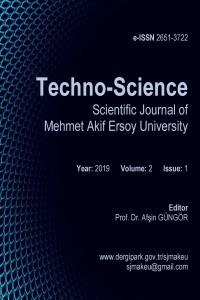
Scientific Journal of Mehmet Akif Ersoy University
Yazarlar: Richard BALTHI MSHELİA, Oluwatosin KOMOLAFE, İbraheem SHEHU DİSO, Abdullahi AUDU ADAMU
Konular:Mühendislik
Anahtar Kelimeler:Carbon footprint,Landfill Gas,Municipal Solid Waste,Solid Waste Management,Waste to Energy
Özet: The North-eastern region of Nigeria is the region with least access to grid electricity in the country, this and poor solid waste management are some of the problems hindering the economic and general growth of the region. This research explored the economic and environmental benefits of recovering energy from landfill gas (LFG). The study utilised secondary data obtained from literature covering a period of 24 years. It was observed that the cumulative quantity of solid waste generated in the region for the period studied reached 104,886,616 tonnes. Using IPCC’s default model, it was determined that such quantity of MSW has the potential of emitting 3,199,142.95 tonnes of methane, and has the capacity of generating 9,066.96 ×106 kWh of electricity. It was estimated that the electricity recovered from the waste produced in the region has the potential for powering about 12% of the households in the region. Findings also suggested that the region could cumulatively earn US$ 2.25 billion from the sale of electricity and carbon trading within the period studied. From an environmental perspective, it was discovered that the emission of 89,576,002.54 tonnes of carbon dioxide equivalent could be avoided by recovering energy from LFG rather than letting it dissipate into the atmosphere. Hence, this study concluded that the environmental and economic benefits of recovering energy from landfill gas are enormous, and it is suggested that the recovery potential can be further improved by having a more efficient waste collection system.